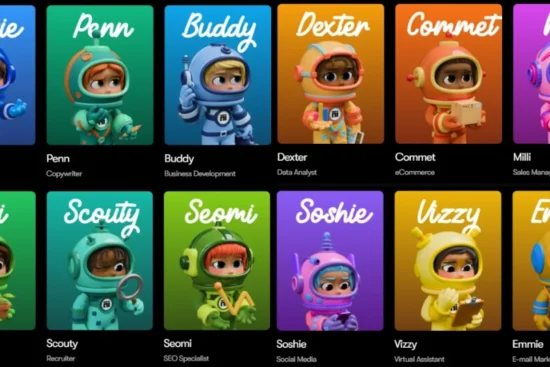
In the past decade, smartphones have undergone a profound transformation. From simple communication devices to powerful mini-computers, their evolution has been driven by groundbreaking advancements in technology. Among these advancements, artificial intelligence (AI) stands out as a game-changer, redefining how we interact with and depend on our smartphones.
AI has enabled smartphones to become smarter, more intuitive, and deeply personalized. From virtual assistants to real-time translation, the integration of AI has not only enhanced functionality but also revolutionized user experience. Let’s explore the remarkable ways AI is shaping the present and future of smartphones.
The Role of AI in Smartphones
AI, at its core, is about enabling machines to mimic human intelligence. In smartphones, AI uses data, algorithms, and machine learning (ML) to perform tasks that previously required human intervention. This technology empowers smartphones to learn, adapt, and make decisions, paving the way for smarter features and improved user convenience.
Key AI Features in Smartphones
1. Smart Assistants
Virtual assistants like Siri, Google Assistant, and Alexa have become staples in modern smartphones. These AI-driven companions can:
- Set reminders, send texts, and make calls.
- Answer complex queries using natural language processing (NLP).
- Control smart home devices seamlessly.
- Learn from user behavior to offer personalized suggestions.
For example, Google Assistant learns your daily habits and offers time-saving suggestions, such as notifying you of traffic on your commute or reminding you about meetings.
2. AI in Photography
One of the most visible impacts of AI is in smartphone photography. AI enhances photos by analyzing scenes and automatically adjusting camera settings, such as:
- Scene Recognition: AI identifies whether you’re shooting landscapes, portraits, or low-light scenes and optimizes settings accordingly.
- Portrait Mode: AI creates a professional-grade “bokeh” effect, keeping subjects in sharp focus while blurring the background.
- Night Mode: By combining multiple shots and processing them, AI enables stunning low-light photography.
- Object Detection: AI can recognize and track objects in real-time, perfect for wildlife or sports photography.
Flagship smartphones like the Google Pixel and iPhone utilize AI for advanced features such as facial recognition in photos, real-time HDR adjustments, and even magic eraser tools to remove unwanted objects.
3. Enhanced Security
AI has significantly bolstered smartphone security with features like:
- Facial Recognition: AI-powered facial recognition systems use ML to distinguish between real users and potential fraud, even in varying lighting conditions.
- Fingerprint Sensors: Advanced AI algorithms ensure faster, more accurate fingerprint detection.
- Behavioral Biometrics: AI tracks user behavior, such as typing patterns or app usage, to detect and prevent unauthorized access.
For instance, Apple’s Face ID technology employs AI to map and store a user’s facial structure, adapting to changes like glasses or facial hair for seamless security.
4. AI-Powered Battery Optimization
Battery life remains a crucial concern for smartphone users, and AI is proving to be an efficient solution. AI-driven battery optimization systems analyze user habits to manage resources better. These systems:
- Identify high-energy-consuming apps and limit their background activities.
- Predict daily usage patterns to allocate battery resources effectively.
- Suggest energy-saving modes during heavy usage or low battery levels.
Phones like Samsung’s Galaxy series and Huawei’s devices use AI to optimize battery consumption dynamically, extending the overall battery life.
5. Personalized User Experiences
AI ensures that smartphones feel tailored to individual users. Examples include:
- Adaptive Brightness: AI adjusts screen brightness based on lighting conditions and user preferences.
- App Suggestions: Predictive algorithms recommend apps or shortcuts based on your routine.
- Content Curation: AI personalizes news feeds, music recommendations, and video suggestions based on viewing history.
By studying user behavior, AI creates a unique interface for each individual, making smartphones feel more intuitive and efficient.
6. Voice and Language Processing
Real-time translation and voice recognition have been significantly improved by AI. Modern smartphones can:
- Translate languages on the go, aiding travelers and business professionals.
- Provide accurate voice-to-text conversion, making typing unnecessary.
- Enable hands-free navigation and device control.
Google’s AI-powered translator app can interpret multiple languages in real-time using just the smartphone camera or microphone, eliminating communication barriers.
7. Health and Fitness Tracking
AI plays a vital role in smartphones designed for health-conscious users. Integrated with wearable devices or standalone apps, AI can:
- Monitor heart rate, sleep patterns, and activity levels.
- Provide health recommendations based on fitness goals.
- Detect irregularities, such as arrhythmias, and alert users to potential health risks.
AI-powered apps like Samsung Health and Apple’s Health app are transforming smartphones into personal health assistants, emphasizing preventative care and wellness.
8. Gaming and Augmented Reality (AR)
AI is enhancing mobile gaming experiences with advanced graphics rendering and predictive analytics. AI is also pivotal in AR applications, allowing smartphones to:
- Provide immersive gaming environments.
- Offer AR-based tools like virtual measuring tapes and room planners.
- Blend real-world environments with digital overlays for unique interactions.
Apps like Pokémon GO and AR navigation in Google Maps exemplify how AI and AR are changing the landscape of entertainment and utility.
9. Real-Time Problem Solving
AI in smartphones excels at providing instant solutions to everyday problems:
- Spam Filtering: AI identifies and blocks spam calls or messages.
- Error Detection: AI-based apps can detect and suggest corrections for grammar, spelling, or design flaws in documents.
- AI in E-commerce: AI integrates with apps to provide personalized shopping experiences, from product recommendations to price tracking.
Benefits of AI Integration in Smartphones
- Improved Efficiency: AI automates routine tasks, saving time and effort.
- Seamless Multitasking: Advanced processors and AI enable smoother performance, even when running resource-intensive apps.
- Enhanced Accessibility: AI-powered voice commands and gestures make smartphones more inclusive for users with disabilities.
- Future-Proofing: AI allows smartphones to evolve, adapting to changing user needs through software updates.
Challenges of AI in Smartphones
Despite its numerous advantages, integrating AI into smartphones has its challenges:
- Privacy Concerns: AI systems require vast amounts of data, raising questions about user privacy and data security.
- Battery Drain: High-performance AI features can consume significant battery power.
- Cost: Advanced AI-driven smartphones are often more expensive due to the integration of cutting-edge technology.
However, ongoing advancements in AI aim to address these issues, making the technology more secure, efficient, and accessible.
The Future of AI in Smartphones
The future promises even more sophisticated AI-driven features in smartphones, including:
- Advanced Personalization: AI will analyze emotions through voice and facial cues, enabling hyper-personalized responses.
- Improved AR Applications: AI will further bridge the gap between virtual and real worlds, revolutionizing fields like education, shopping, and remote work.
- Self-Healing Devices: AI might enable smartphones to detect and fix software bugs or hardware issues autonomously.
- Greater Automation: From autonomous driving support to remote healthcare solutions, AI will expand smartphone capabilities beyond personal use.
Conclusion
AI has transformed smartphones into indispensable tools that cater to nearly every aspect of modern life. Its integration has enhanced user experience through smarter, more intuitive features that simplify tasks and enrich daily routines. As AI technology continues to evolve, smartphones will become even more intelligent, versatile, and aligned with user needs.
The era of AI-powered smartphones is just beginning, and the possibilities are limitless. Whether you’re a tech enthusiast or an everyday user, the advancements in AI ensure that smartphones will remain at the forefront of innovation, shaping the way we connect, work, and live.












